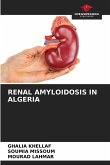This series studies 94 observations of neurological bladders in children. Myelomeningocele was the main etiology (72%). The presence of vesico-ureteral reflux and advanced age (greater than 12 years) at the time of management are predictive factors for poor renal function. This series clearly shows that neurovessel disease evolves as an obstructive uropathy (65%) associated with urinary incontinence, which is almost constant (97%). We have clearly shown that CPI gives excellent results and enables us to control the three problems posed by neurological bladders: urinary tract infection, deterioration of the upper urinary tract and, to a lesser degree, incontinence (1 in 2 patients). On urodynamic assessment, 80% of neurovessels were hyperactive. Intradetrusoral injection of botulinum toxin has found its place as an alternative to bladder enlargement. 84% of injected patients became clean. The safety of the injection has been proven in adults, allowing reinjections when the effect wears off.
Bitte wählen Sie Ihr Anliegen aus.
Rechnungen
Retourenschein anfordern
Bestellstatus
Storno








